Following the departure of Annemarie Farrell after Spring 2024, former sports management professor at Ithaca College and head coaching position of the men’s rugby club was left vacant. The new coaching team is working to maintain the positive team culture that Farrell built as well as to address the gradual decline in the roster size.
Men’s rugby head coach Terry Light said Farrell established a strong team culture that led to tight bonds throughout the program, which he observed as the assistant coach since 2013. Light said that coaching rugby at the college holds a significant place in his life because his father Ben Light ’36 was a football, basketball and baseball player for the Bombers.
Light said he learned a significant amount from Farrell in regard to coaching, team culture and building relationships with the players and coaching staff.
“Working with Annemarie was just really great in terms of both making it fun for me and having that mutual respect,” Light said. “I learned a great deal from her about building the club culture and now I’ve been handed the reins and the desire to keep that going.”
Farrell, the head coach of the team from 2010 until Spring 2024, said her biggest priority was not the result of each match, but the establishment of close relationships with teammates and coaches. Before Farrell took over the program, the team had been shut down since 1994 because of misconduct by team members involving alcohol, according to an email from Farrell. Once she took the reins, she brought the program back and built it from the ground up. Farrell said her main team values included giving playing time for everyone and providing a space where everyone could feel comfortable bringing their true identity to practice.
“I truly believe that my job as a rugby coach was to help make good memories, … that their connection to each other was always going to be more important than the score on the scoreboard,” Farrell said. “By focusing on community, by focusing on each other, we became a stronger team.”
Farrell’s values of building a strong team culture quickly resonated with her athletes, as the success vastly accumulated around their strong bonds. In the Fall 2023 season, the team advanced to regionals, but fell short to SUNY Plattsburgh on the road. For Fall 2024, the team finished 2-3 in the regular season and is scheduled to play its first playoff game at 11 a.m. Nov. 3 at Higgins Stadium against the University of Rochester.
Senior President Trevor Torres said the game itself is important, but the time spent building the team culture is equally important.
“As much as these matches are so important to us and winning is so important, being there for each other and enjoying the time we spend together is always the main goal and will remain the same goal,” Torres said.
Torres, who is going into his fourth year with the program, said the team has undergone several changes, which players are adapting to. Along with a new head coach, players are settling into their new roles like Torres going into his first season as president and senior Oliver Alva stepping up as a new captain.
“I think this season will be a year of setting standards for what we want seasons in the future to look like,” Torres said. “The culture [Farrell] brought us was really great and we look to follow in those footsteps.”
In the past under Farrell, the team’s roster had seen upwards of 45 to 50 athletes, which is enough to field up to two full teams of 23 for matches. The new assistant coach Samuel Harig ’24 played for Farrell during all four of his seasons and attributed the inconsistent roster size to the COVID-19 pandemic, as did current and former players. This fall, the roster sits at about 30 players.
Junior Jonah Barresi, former treasurer of the team, said recruitment has dipped since the COVID-19 pandemic and that the roster size has gradually decreased since.
“Really like after COVID, the team … was very different than the rugby team [pre]-COVID, and then we lost a lot of momentum in and around that,” Barresi said. “I think a lot of the issues is like, well, if you’ve ever tried to play rugby, a lot of what people will say is it seems super dangerous.”
Harig said via email that the established team culture has led to athletes remaining with the program all four years, but the biggest challenge to recruiting is finding students who are willing to try out such a physical sport.
“When I was on the team it was hard to recruit athletes,” Harig said. “It’s obviously hard to get individuals to try new things and break out of their comfort zones. I think this is one of the major challenges that rugby faces because it is such a unique sport that few have heard of before college. … This level of rugby is more controlled due to the number of new players on teams every year. There’s always a risk of injury in any sport you try, but you’ll never know if you like it unless you try it out.”
Harig said the players have the biggest voices in the recruitment process and that showcasing the team’s close-knit culture is how the program can attract new students.
“I think the best way to recruit would be more advertisements, informational meetings and social events on campus to spread the word on how enjoyable the club really is,” Harig said. “The best thing for individuals to do is just to try it out and see how they like it.”
Alva said that having a familiar face as the new head coach will help smoothen what is looking to be a transition year for the team. Alva, who has a significant amount of experience working with both Farrell and Light, said he has full confidence in Light’s ability to lead the team and recruit the numbers needed to maintain stability on the roster.
“With rugby, it’s different from some of the other club sports with how many moving parts there are,” Alva said. “[Light has] made a lot of efforts for recruitment which has helped a lot and I think that’s the main thing that’s helping our team right now, besides his overall dedication to our sport.”
Harig said on top of prioritizing Farrell’s established culture, making sure the team is on the same page with one another both on and off the field is important.
“That’s been my main goal, to have fun with everyone that shows up, [and] kind of help them improve so that they are better rugby players but also better people and they are able to help one another out and build those relationships outside of just playing rugby.”


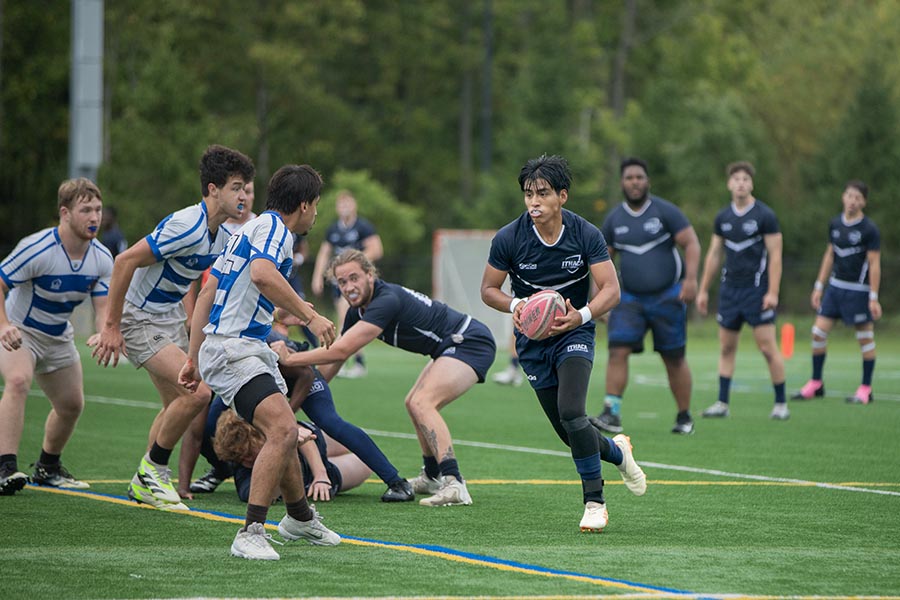
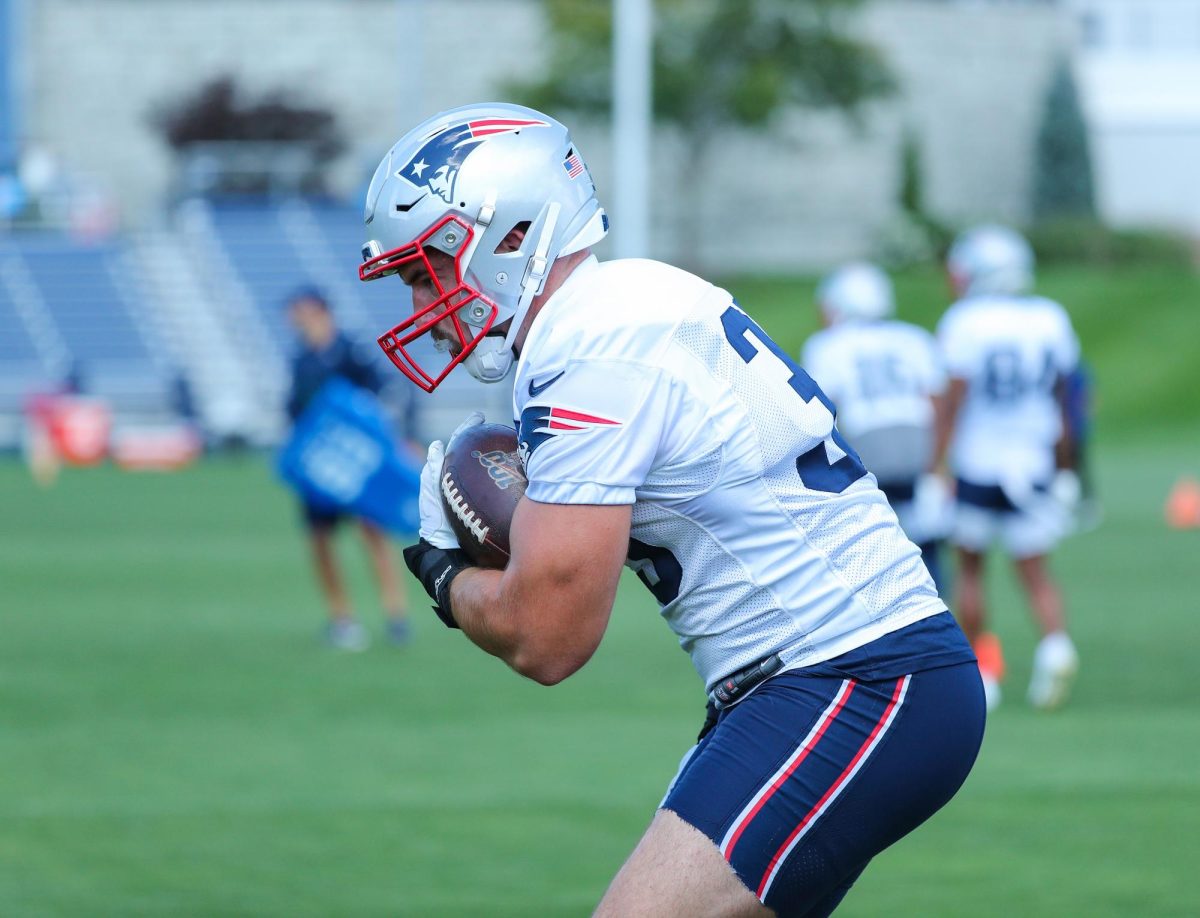





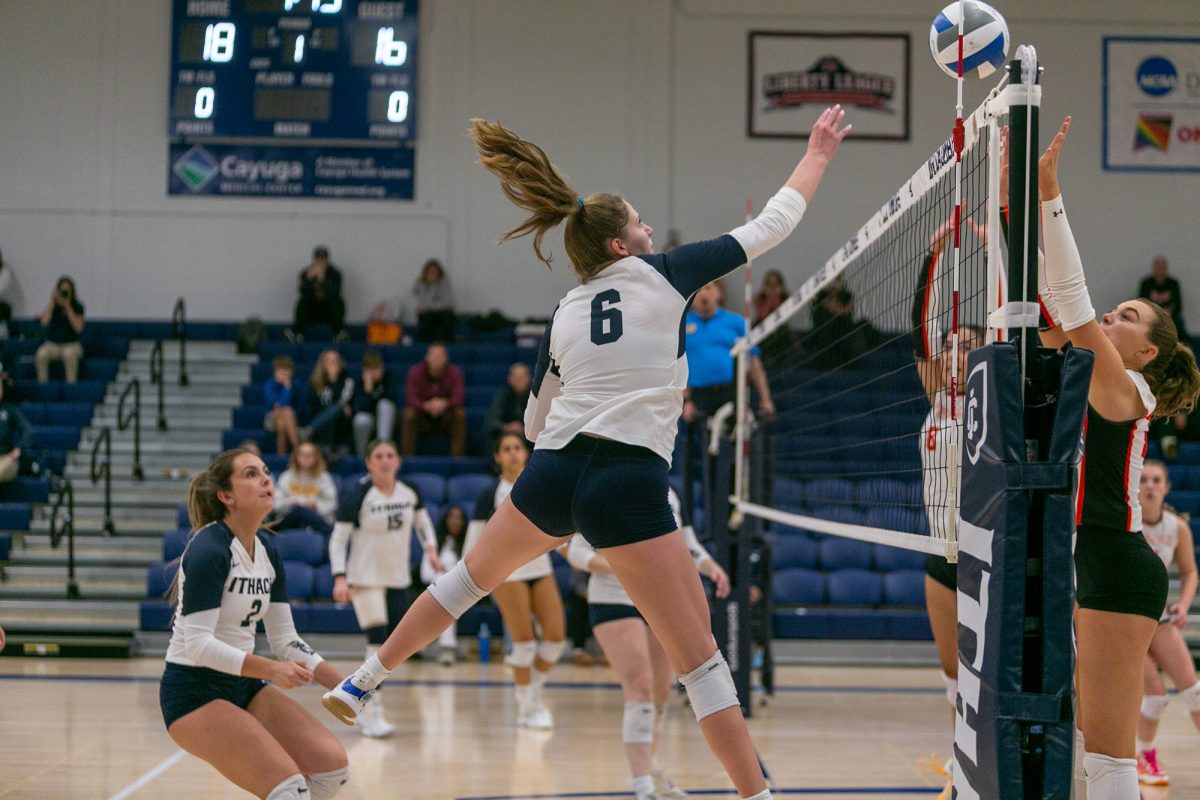
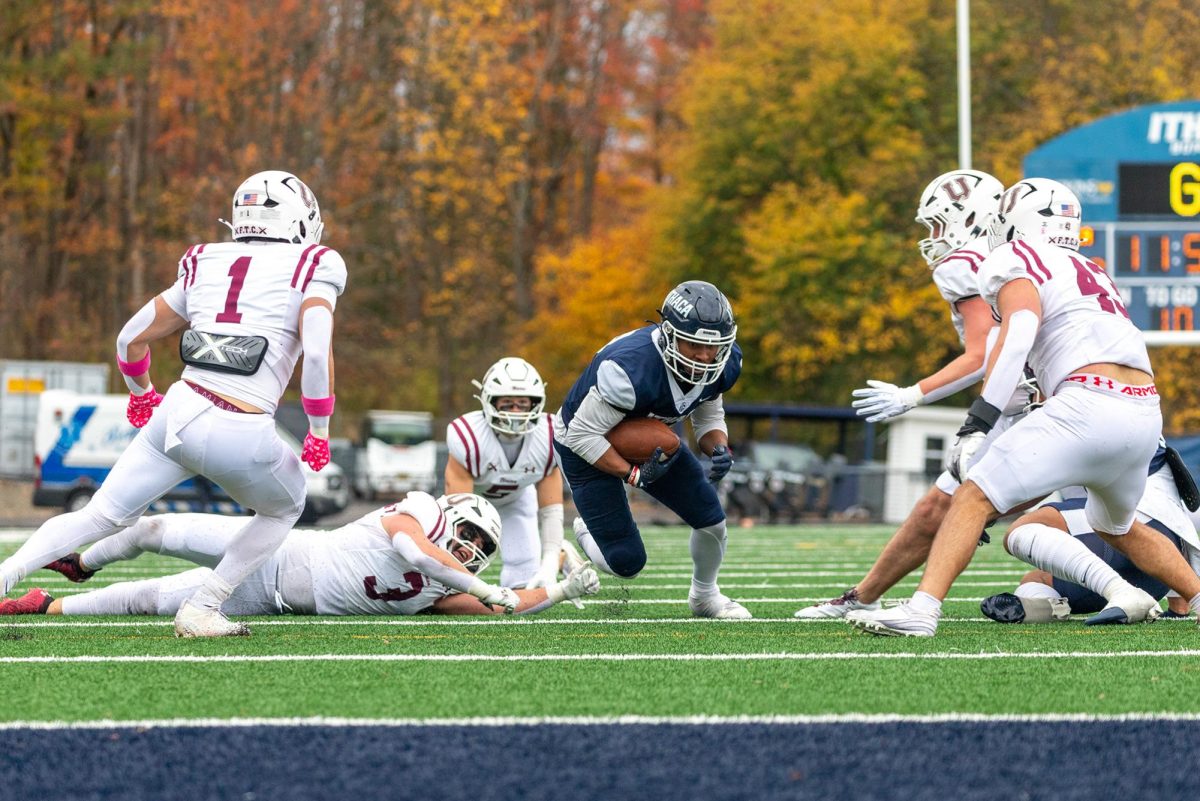
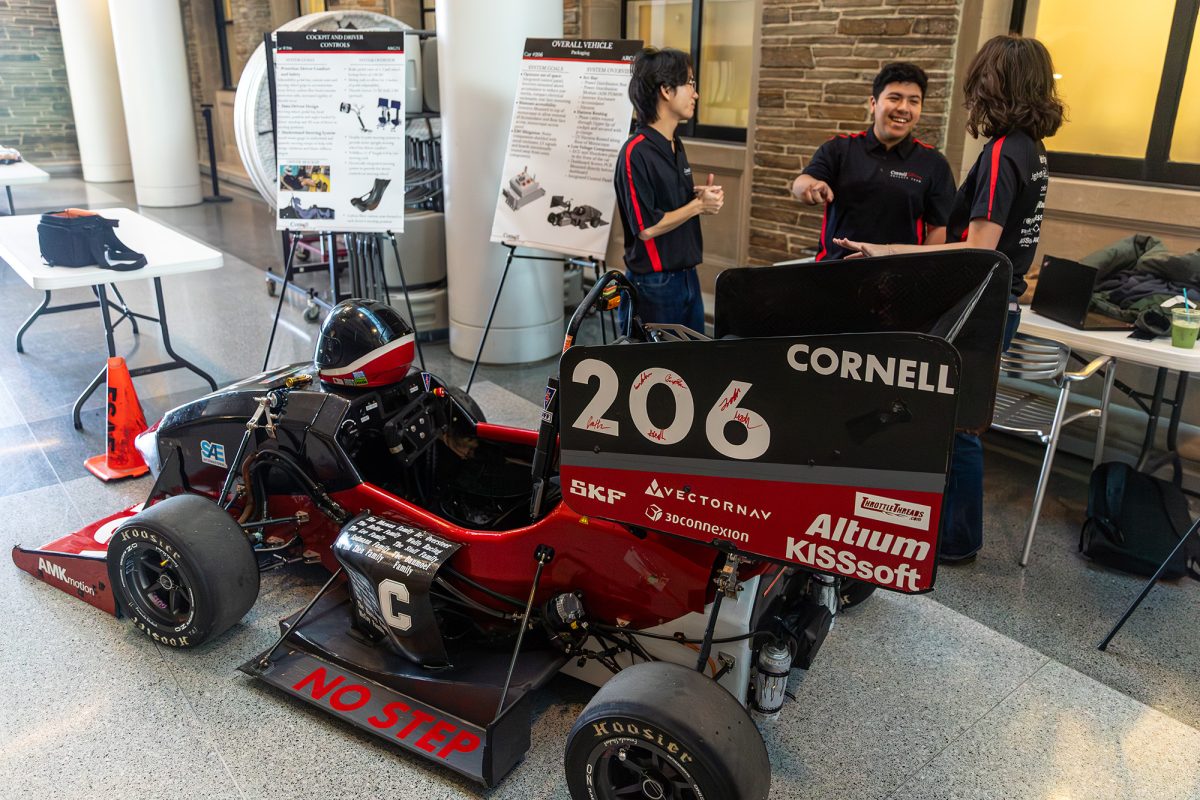



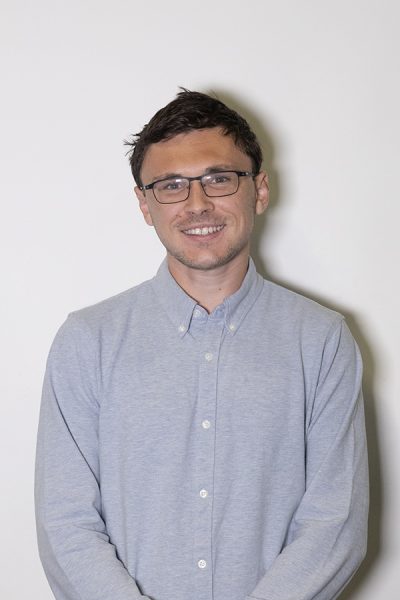
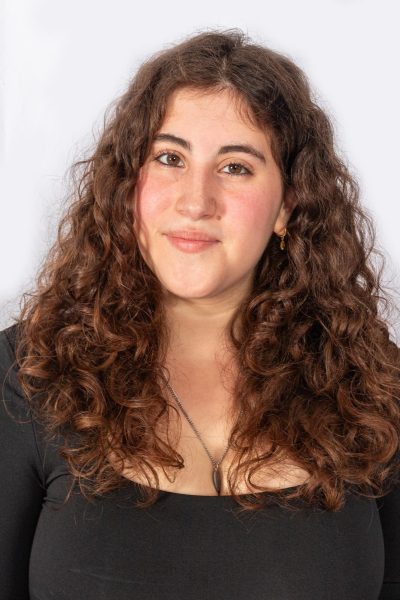
Joe Martin • Jan 15, 2025 at 10:03 pm
Here to share a bit more history of the club.
In the winter of 2006-2007, Jack Hammond ’07 approached me (I had been Colgate U’s men’s coach) about restarting a men’s rugby club at Ithaca College. He had studied abroad in Australia and picked up the sport there.
He managed to recruit 50 students to show up to the first meeting in January. The team competed as a senior men’s club, but scheduled local colleges. They aimed to compete with such a high level of integrity and professionalism that they would change the minds of a school that was skeptical about allowing men’s rugby back on campus. They also aimed to show they could compete with the best.
They practiced in the snow throughout the winter. They spent their Friday nights before games eating pasta and watching Rocky movies. They traveled to games in coat and tie.
Miraculously, they won the first game they ever played – in old jerseys loaned from Colgate! – against RIT 7-5 (they did get their own jerseys shortly after thanks to a generous donation). They had great wins against highly regarded teams, like Syracuse, and took an international trip to Canada to take on a club in Toronto.
Unfortunately, their efforts to reestablish the club that year went unrewarded, as the school decided to reject their application for club membership, after which I moved on and Jack Hammond graduated.
Fortunately, one of those 50 students recruited by Jack Hammond was a dedicated freshman: J.C. Vonholtz ’10, who helped keep the team together for two more years before convincing Annemarie Farrell to take the reins, at which point the team was granted recognition by the college.